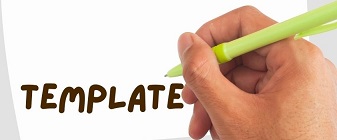Community Characteristics as the Basis of Empowerment Strategies In Sustainable Environmental Hygiene Management
(1) Universitas Negeri Makassar
(2) Politeknik Kesehatan Megarezky
(3) Universitas Negeri Makassar
(4) Politeknik Kesehatan Megarezky
(*) Corresponding Author
DOI: https://doi.org/10.26858/ja.v10i1.44760
Abstract
The community is one of the waste producers, so community empowerment in environmental hygiene programs is very strategic. The purpose of the study was to determine the characteristics (level of education, employment, income, a distance of the house to the TPS and TPA), and community perceptions related to sustainable environmental hygiene programs, especially towards the waste management of the city of Makassar. The data collection method used in the characteristics of society towards environmental cleanliness is carried out using a survey approach. Data analysis using qualitative and quantitative techniques. The results showed that the variety of these characteristics contributed (except the level of education) to the sustainable environmental hygiene management program. The results of Fisher's contingency coefficient test, showed a significant relationship between community characteristics, except for the level of education and sustainable environmental hygiene management programs.
Keywords
Full Text:
PDFReferences
Agustang, A. (2023). Filsafat Ilmu Dan Metode Penelitian “Upaya Pengembangan Ilmu” (Andi Dody May Puta Agustang, Ed.; 1st ed.). Yayasan Mitra Husada 2023.
Agustang, A., Oruh, S., & Agustang, A. D. M. P. (2022). Building Environmental Awareness Through the Makassar Eco-Brick Community Social Movement in Plastic Waste Management. SHS Web of Conferences, 149, 2005. https://doi.org/10.1051/shsconf/202214902005
Andini, S., Saryono, S., Fazria, A. N., Hasan, H. (2022). Strategi Pengolahan Sampah dan Penerapan Zero Waste di Lingkungan Kampus STKIP Kusuma Negara. Jurnal Citizenship Virtues, 2(1), 273–281. https://doi.org/2775-9946
Awasthi, A. K., Cheela, V. R. S., D’Adamo, I., Iacovidou, E., Islam, M. R., Johnson, M., Miller, T. R., Parajuly, K., Parchomenko, A., Radhakrishan, L., Zhao, M., Zhang, C., & Li, J. (2021). Zero waste approach towards a sustainable waste management. In Resources, Environment and Sustainability (Vol. 3). https://doi.org/10.1016/j.resenv.2021.100014
Calinski, T., Moore, D. S., & McCabe, G. P. (1990). Introduction to the Practice of Statistics. In Biometrics (Vol. 46, Issue 3). W. H. Freeman. https://doi.org/10.2307/2532120
Cheela, V. R. S., Ranjan, V. P., Goel, S., John, M., & Dubey, B. (2021). Pathways to sustainable waste management in Indian Smart Cities. Journal of Urban Management, 10(4). https://doi.org/10.1016/j.jum.2021.05.002
Das, S., Lee, S. H., Kumar, P., Kim, K. H., Lee, S. S., & Bhattacharya, S. S. (2019). Solid waste management: Scope and the challenge of sustainability. Journal of Cleaner Production, 228. https://doi.org/10.1016/j.jclepro.2019.04.323
Enri Damanhuri, T. P. (2016). Pengelolaan sampah terpadu (Tuti Sarah, Ed.; Edisi kesa). Penerbit ITB,.
Kumar, S., Singh, S., & Banerjee, S. (2020). Solid waste management in developing countries. Journal of Critical Reviews, 7(10). https://doi.org/10.31838/jcr.07.10.252
Kumar, S., Smith, S. R., Fowler, G., Velis, C., Kumar, S. J., Arya, S., Rena, Kumar, R., & Cheeseman, C. (2017). Challenges and opportunities associated with waste management in India. In Royal Society Open Science (Vol. 4, Issue 3). https://doi.org/10.1098/rsos.160764
Muntasir , M. ., Weraman, P. ., Yulis , D. M. ., Muniroh , L. ., Yuliani , N. N. ., & Roza, N. . (2023). Introduction To The System Of Chemical Drugs Use On Public Nutrition And Health: Case Study In Indonesia In The Society 5.0 Era. Multicultural Education (ME), 8(1), 51–63.
Singh, E., Kumar, A., Mishra, R., & Kumar, S. (2022). Solid waste management during COVID-19 pandemic: Recovery techniques and responses. Chemosphere, 288. https://doi.org/10.1016/j.chemosphere.2021.132451
Sugiyono. (2018). Metode penelitian kuantitatif, kualitatif dan kombinasi (mixed methods) (Cetakan ke). Alfabeta, 2018.
Zhang, C., Hu, M., Di Maio, F., Sprecher, B., Yang, X., & Tukker, A. (2022). An overview of the waste hierarchy framework for analyzing the circularity in construction and demolition waste management in Europe. In Science of the Total Environment (Vol. 803). https://doi.org/10.1016/j.scitotenv.2021.149892
Article Metrics
Abstract view : 141 times | PDF view : 28 timesRefbacks
- There are currently no refbacks.
Copyright (c) 2023 Andi Agustang, Hairuddin K, Andi Dody May Putra Agustang, Dian Meiliani Yulis

This work is licensed under a Creative Commons Attribution 4.0 International License.






























 under a
under a